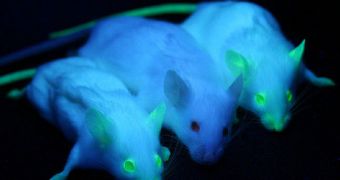In a study that may lead to the development of new therapies for conditions such as schizophrenia and autism, researchers at the New York University have identified a protein that they say plays a critical role in underlying behavioral flexibility.
In other words, this molecule is essential for our ability to adapt our behaviors to a situation similar to one we've encountered before, but not identical. We provide different responses for these situations, so the ability to switch between various types of answers is very important.
While the new investigation was conducted on lab mice, it does hold great promise for uses on humans. The tiny rodents are often used as proxies for human studies, on account of the similarities that exist between the brains of the two species.
Details of the new study appear in a paper published in the latest issue of the esteemed scientific journal Cell Reports, PsychCentral informs. The work may provide additional insights into conditions including autism and schizophrenia, and could potentially lead to the development of novel therapies.
Protein synthesis is an important component of our ability to adapt, because these molecules can induce neural function and behavior changes in the human brain that depend on experiences.
This mechanism may fail in people suffering from a variety of mental disorders. Their brains are simply incapable of adjusting their behavior depending on current situations, leading to unusual, inappropriate or wrong responses to a given scenario.
The new study was focused on the kinase PERK, which is an enzyme involved in controlling protein synthesis. A number of mice were genetically engineered to lack the enzyme, and were then subjected to a series of tests alongside healthy controls.
When it came to displaying behavioral flexibility, mice in the control group performed normally, whereas the performances of rodents in the test group were significantly decreased. This demonstrates that PERK is partially responsible for underlying this type of flexibility.
“A rapidly expanding list of neurological disorders and neurodegenerative diseases, including Alzheimer’s disease, Parkinson’s disease, and Fragile X syndrome, have already been linked to aberrant protein synthesis,” researcher Eric Klann, PhD, explains.
The expert, a member of the research team and a coauthor of the new study, holds an appointment as a professor with the NYU Center for Neural Science. “Our results show the significance of PERK in maintaining behavioral flexibility and how its absence might be associated with schizophrenia,” he adds.
“Further studies clarifying the specific role of PERK-regulated protein synthesis in the brain may provide new avenues to tackle such widespread and often debilitating neurological disorders,” the investigator concludes.

 14 DAY TRIAL //
14 DAY TRIAL //